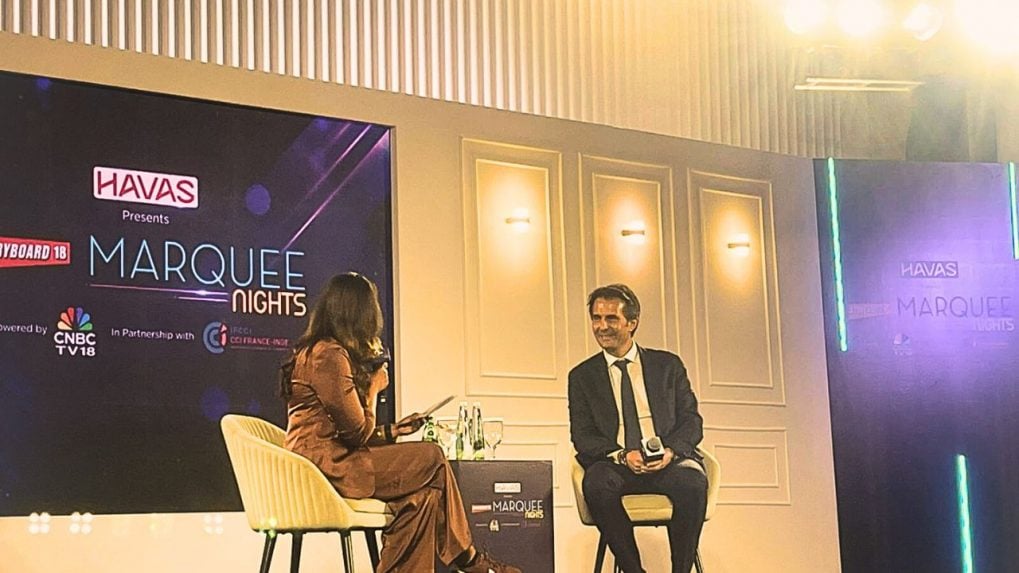"It’s a big bet to kill legacy brands": Havas' Yannick Bolloré on why brand heritage still matters
In an age of agency consolidations and rebranding, Bolloré, Chairman and CEO, Havas, warns against undervaluing legacy brands and stresses the need to stay humble, future-ready, and people-first.
ADVERTISEMENT
As global advertising giants embark on massive consolidations and identity shifts, Yannick Bolloré, Chairman and CEO of Havas, believes legacy brands hold enduring value that businesses risk losing in the race for scale and reinvention.
Speaking at Storyboard18 Marquee Nights, the executive warned against undervaluing legacy brands and stresses the need to stay humble, future-ready, and people-first.
“All CEOs, CMOs, or anyone working in this industry should ask themselves: why would you change a brand? What for? What are you going to explain?” he said. “We were the first to make such a move—we changed to Havas Media ten years ago, and I think it has been successful. So I won’t blame WPP, for instance, but in terms of content, it’s different. Those legacy names are great assets.”
Read more: We will continue acquisition-led strategy in India: Havas Chairman and CEO Yannick Bolloré
“It’s a big bet to kill legacy brands. Brands have superpowers. Brands are assets you need to cherish and nurture,” he emphasized.
Bolloré’s remarks come in the wake of WPP’s ongoing consolidation and rebranding efforts, which include renaming GroupM agencies such as Wavemaker and Mindshare under a unified identity, WPP Media. While such moves may be aimed at streamlining operations and reinforcing scale, they have sparked debate in the industry over the loss of brand equity and creative identity.
With industry consolidation creating an increasingly top-heavy structure, Bolloré predicts a future dominated by just a few large networks. “I think we’re headed toward a top three scenario,” he said. “But there will always be independent and boutique agencies performing well in their own markets. It’ll be a combination of both—large groups operating at scale globally, and smaller players offering disruptive thinking.”
However, he admitted the hurdles for smaller agencies trying to go global are significant. “It’s very hard for a small agency operating in one country to become a global network... There is a kind of barrier to entry for newcomers at the global level or global scale."
Staying Future-Proof: A Lesson in Humility
Reflecting on Havas’ nearly two-century-old legacy—established in 1835, Bolloré said the key to staying future-proof is embracing change without arrogance.
“My biggest fear as a CEO is disruption,” he said. “Every time something new comes up, I research it thoroughly. Two years ago, everyone was talking about the metaverse, those fancy digital worlds."
“But if you want to stay future-proof, never be arrogant. Stay humble. Even if you’re a market leader, a startup from anywhere can come in and disrupt you. Look at the Fortune 500—70% of those companies didn’t exist 30 or 40 years ago.”
Looking ahead, Bolloré said the next three years of investment will focus on three pillars: people, data, and geography.
Read more: Consolidation or Collision? How ad land’s mergers create crisis of overlapping of leadership roles
“It is the combination of having the best tools, the best solutions and the right scale in the right direction.”
Asked about global tensions—particularly between the US and China—and whether India is seen as a strategic counterbalance, Bolloré was cautious but optimistic.
“I don’t like to oppose a region or a country or pit one country against another, especially not India and China,” he said. “India becoming the most populous country last year is impressive. But both India and China have done incredible things over the past 30–40 years. I don’t know who will be number one in 30 years, but they’re both giants with great futures. We’re happy to invest in both.”


